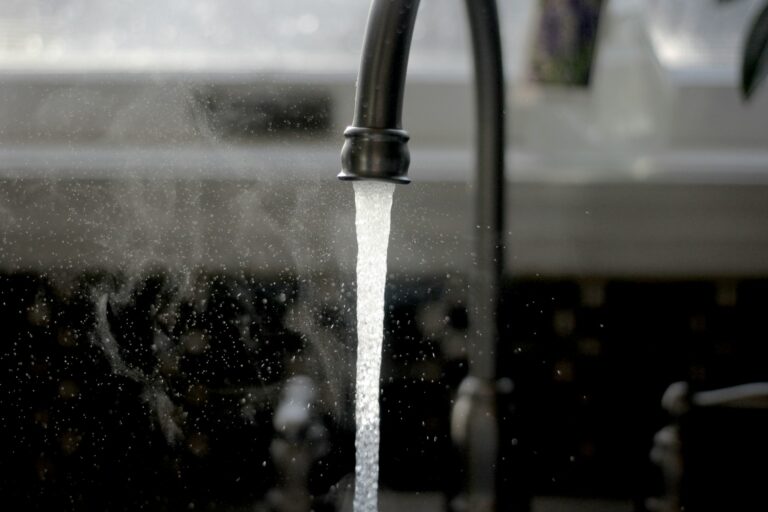When pipes freeze, they can cause significant damage to your home. Understanding the signs of pipe freezing and knowing how to act quickly can prevent costly repairs. Burst pipes can lead to water damage, which can be a nightmare for homeowners. In such situations, Sentry Restoration is here to provide expert water damage restoration, ensuring your home is restored quickly and effectively. As temperatures drop in Athens, Georgia, being prepared for freezing pipes is essential, and having a trusted restoration partner like Sentry Restoration can make all the difference.
Understanding the Causes of Pipe Freezing
Freezing pipes occur when the temperature drops low enough to freeze the water inside the pipes. Understanding the causes helps you take preventive measures. One major cause is poor insulation. If your pipes, especially those in unheated areas like basements and garages, lack proper insulation, they are more likely to freeze.
Another cause is the placement of pipes. Pipes located along exterior walls are more exposed to cold air and are at higher risk of freezing. Similarly, any pipes running through unheated spaces, like attics or crawl spaces, are vulnerable. It’s important to know where these pipes are so you can protect them.
Frozen pipes often result from sudden temperature drops. In Athens, Georgia, where temperatures can fluctuate, a quick drop in temperature can catch you off guard. Keeping a close eye on weather forecasts and maintaining a stable indoor temperature can help reduce this risk.
Common Signs Your Pipes Are Freezing
Recognizing the signs of freezing pipes early can prevent major damage. One common sign is frost on the pipes. If you notice a layer of frost or ice on your pipes, that’s a strong indicator that they are starting to freeze.
A second sign is reduced water flow. If you turn on a faucet and there is little to no water coming out, the pipe feeding the faucet may be frozen. This can happen gradually or suddenly and is a clear warning sign.
Another indication is strange odors. If you notice odd smells coming from drains or faucets, a frozen pipe could be blocking the flow, causing odors to back up into your home.
Lastly, listen for unusual sounds. Popping or banging noises inside walls or floors can signal that ice is forming inside pipes and creating pressure. Awareness of these signs can help you act quickly and mitigate damage. Being vigilant, especially during cold spells in Athens, Georgia, can protect your home from severe water damage.
Immediate Steps To Take When You Suspect Frozen Pipes
If you suspect your pipes are frozen, act quickly to prevent them from bursting. Here are some steps you should take immediately:
1. Turn On the Faucet: Open the faucet connected to the suspected frozen pipe. This allows water to flow and helps relieve pressure. Both the hot and cold handles should be turned on.
2. Apply Heat to the Pipe: Use a hairdryer or apply warm towels to the frozen section of the pipe. Start from the faucet end and work your way back. Never use an open flame or blowtorch, as this can damage the pipe and create a fire hazard.
3. Check for Cracks or Leaks: As the pipe thaws, monitor it for any leaks or cracks. If you see water leaking, turn off the main water supply and call a professional immediately.
4. Keep the Heat On: Maintain a warm temperature in your home by keeping the heat on. Open cabinet doors to allow warm air to circulate around pipes, especially those located along exterior walls or in unheated areas.
If you’re in Athens, Georgia, where temperatures can change quickly, these immediate actions are crucial for preventing water damage.
Long-Term Prevention Strategies
Preventing pipes from freezing in the first place is the best approach. Here are some long-term strategies to consider:
1. Insulate Your Pipes: Wrap pipes in foam rubber or fiberglass sleeves. Focus on pipes in unheated areas like attics, basements, and garages. This insulation helps maintain a consistent temperature around the pipes.
2. Seal Cracks and Holes: Use caulk or spray foam to seal any openings in walls, floors, and ceilings. This prevents cold air from coming in and keeps your home warmer.
3. Install Pipe Heating Cables: For extra protection, install electric heating cables or heat tape around vulnerable pipes. These products keep pipes warm during cold spells and can be easily controlled with a thermostat.
4. Keep the Heat On: During cold weather, maintain a steady temperature indoors. Even if you’re away, set the thermostat to at least 55 degrees Fahrenheit to prevent pipes from freezing.
5. Drain Outdoor Pipes: Make sure to disconnect garden hoses and drain outdoor faucets before the arrival of cold weather. Use faucet covers for extra protection.
In a place like Athens, Georgia, where the weather can be unpredictable, adopting these long-term strategies can save you from the hassle and expense of dealing with burst pipes.
Conclusion
Frozen pipes can lead to significant water damage and costly repairs. Acting quickly when you suspect frozen pipes and taking preventive measures can save you a lot of trouble. Understanding the causes, recognizing the signs, and knowing the immediate steps to take are crucial for protecting your home.
If you do experience water damage from burst pipes, don’t hesitate to seek professional help. Contact Sentry Restoration for expert water mitigation and water damage restoration services. We’re here to help you protect your home and restore it to its original condition.



